|
From October 16 to 17, 3rd China-Shanghai International Taiji Health Symposium & 16th China-Shanghai International Symposium on Qigong Science with the theme of Taiji • Integration • Health were held in Shanghai, which was hosted by Shanghai University of Traditional Chinese Medicine and Shanghai Academy of Traditional Chinese Medicine, and undertaken by Shanghai Qigong Research Institute and Taiji Health Center of Shanghai University of Traditional Chinese Medicine. The International Conference combined both online and offline part to maximize the breadth and width of communication. Experts, scholars and Chinese medicine culture lovers from China, France, Spain, Greece, Japan, Indonesia, Sweden, Russia, Singapore, Australia and other countries participated in the conference through the Internet, with more than 3000 visitors a day on the 16th.
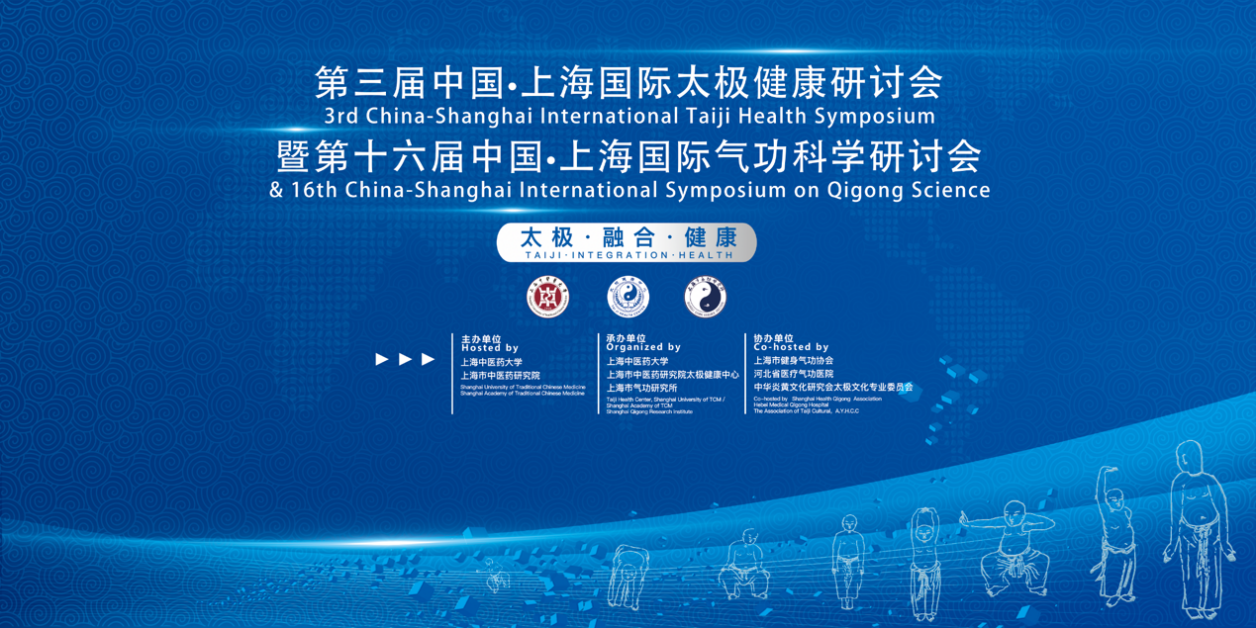
The opening ceremony of the conference was presided over by Li Jie, Director of General Office, Shanghai Academy of Traditional Chinese Medicine. Xu Jianguang, President of Shanghai University of Traditional Chinese Medicine, congratulated the opening of the conference. He welcomed guests from home and abroad and sincerely thanked the participants for discussing and sharing academic achievements through various forms such as academic reports, topic communication and Qigong performances, so as to make Taiji, a treasure of Chinese traditional culture, better benefit people's health.
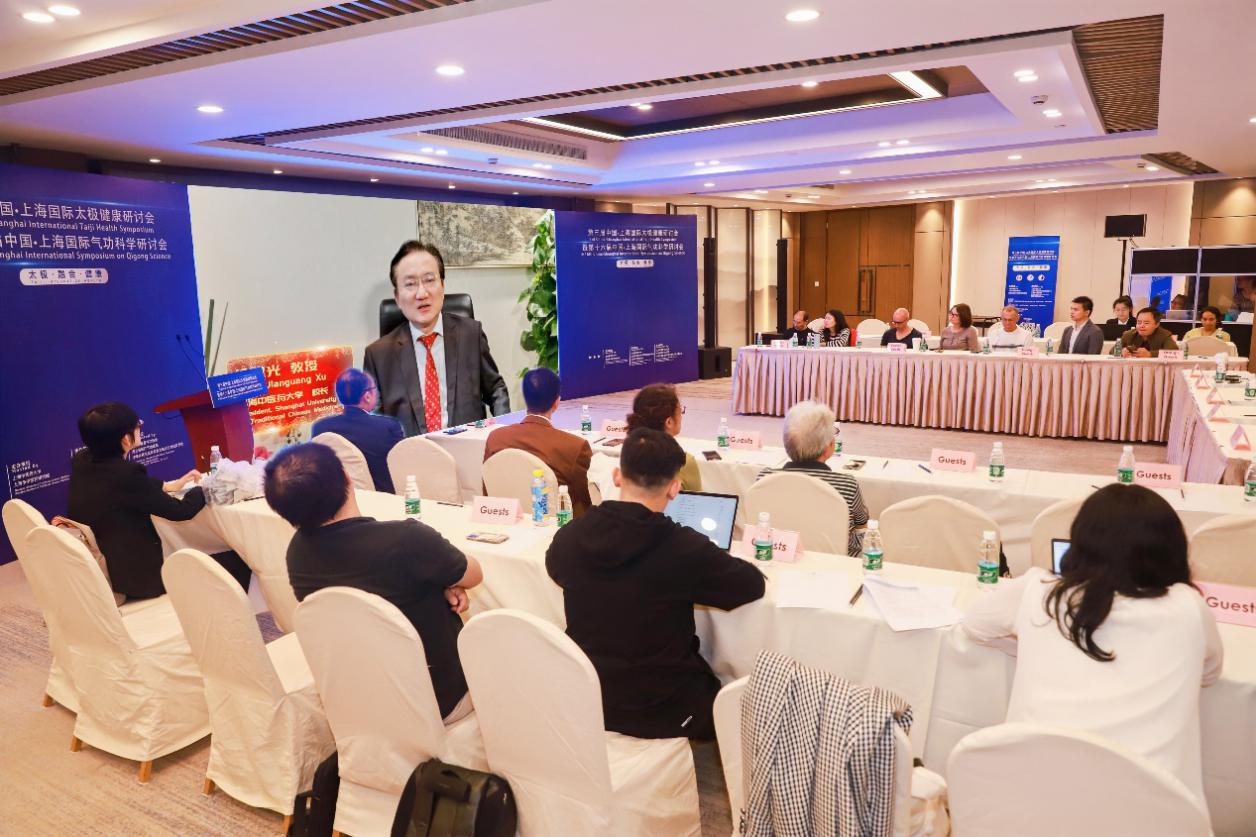
Euthymios Athanasiadis, Press & Communication Counselor of Embassy of Greece, congratulated the convening of this conference. He said that with the support of the Greek Embassy in China, the first overseas branch of Taiji Health Center has always maintained close contact with Shanghai University of Traditional Chinese Medicine and actively exchanged visits with Athens Medical Association and other institutions since its establishment in Greece in 2018. In the future, Memorandum of Understanding on the Belt and Road Initiative signed by the two governments will be a guide for the two governments to play an active role in the development of education, culture and medicine.

Hu Hongyi, Deputy Director of Shanghai Health Commission and Deputy Director of Shanghai Municipal Administrator of Traditional Chinese Medicine, delivered a speech. He pointed out that 'Taiji health' is in line with the important concept of 'taking physiology, psychology and good social adaptability as the ultimate goal of health' advocated by the World Health Organization. Shanghai pioneered the study of Qigong in China. We should strive to implement the initiative of President Xi Jinping to establish human health community. With the outstanding problems of modern life, modern diseases and health maintenance, we will integrate the concept of Taiji Health into the whole life cycle and health cycle and contribute China's experience and wisdom to the world.

Ramón María Calduch, Director of Taiji Health Center in Barcelona, Spain and President of the European Foundation for Traditional Complementary and Integrated Medicine, Georgios Georgoudis, Director of Taiji Health Center in Athens,Greece and Professor of University of West Attica, Athens, Greece, and Chen Xi, Vice President of Shanghai Health Qigong Association, addressed the conference online.
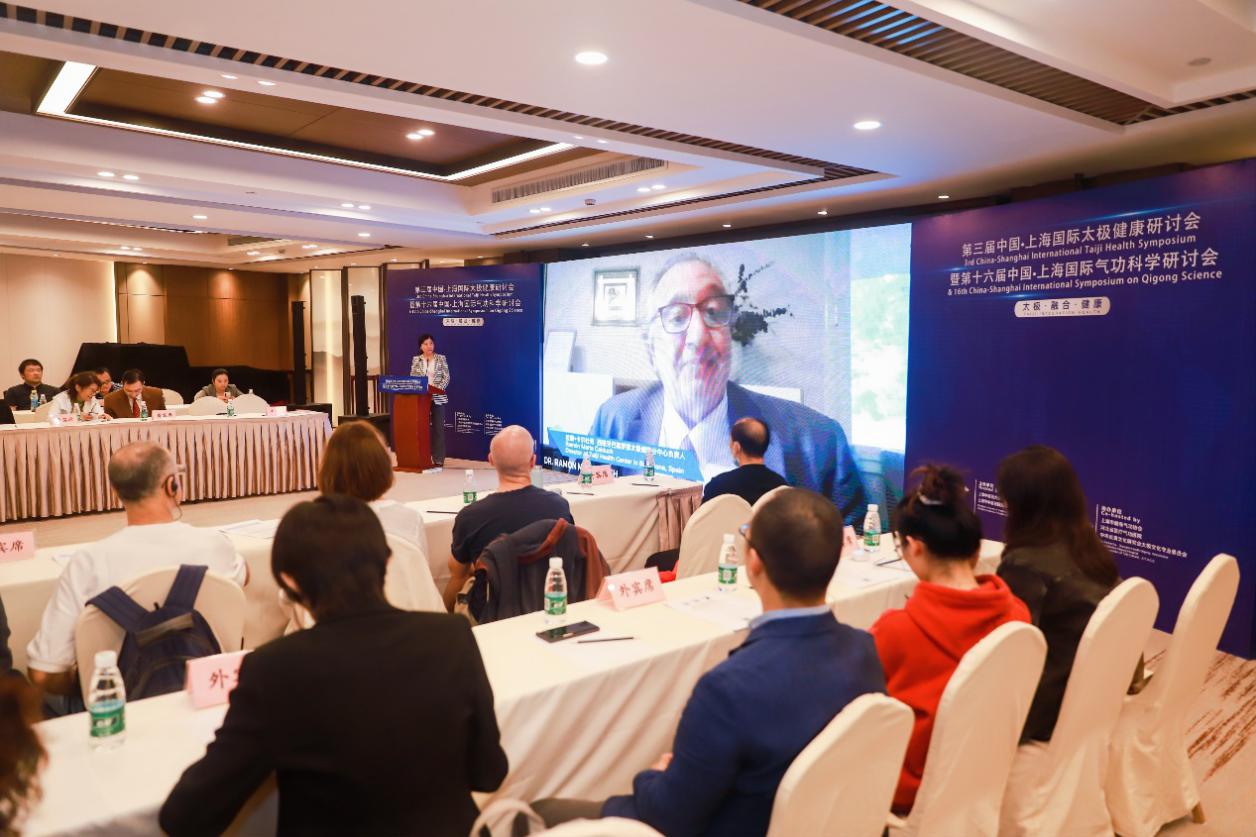
At the opening ceremony, Lin Xun, Director of International Exchange Office, SHUTCM, and Xu Feng, Director of Shanghai Qigong Institute, jointly unveiled the new book Dictionary of Common Qigong Glossary (Spanish-Chinese). This is the third volume after the English Chinese and French Chinese versions. It provides a learning tool for traditional Chinese Qigong lovers in Spanish speaking countries and regions.

During the meeting, nearly 30 delegates conducted topic communication around the research results and cooperation prospects of 'Taiji Health' in the fields of self-cultivation, medical rehabilitation and cultural exchange, discussed and carried forward the concept of 'Taiji Health', strengthened the connection between Taiji, Qigong and international natural medicine, and made the cultural treasure of Chinese traditional health better play a role in modern people's physical and mental health.
On the morning of the 16th, the keynote speeches such as Teaching-Learning “Health Prevention with Chinese Medicine and Qigong”by Dr. Michèle Germain from the Eastern Medical School of the First University of Lyon, France, Exploration and Practice of Inheritance and Innovation of Daoyin Therapy of TCM by Professor Fang Min of Shanghai University of Traditional Chinese Medicine, Thoughts on the Inheritance and Development of Taiji Quan and Health Qigong in the New Era by Professor Wang Huiru of Shanghai Jiaotong University, Taiji Qi Dao and New State of Human Health by Huo Yongling, Director of Association of Taiji Culture, Association for Yan Huang Culture of China, Trans-Regional Cultural Transmission and Evolution in East Asian Cultural Circle - A Case Study of Qigong Health Science in Japan by Professor Liao Chiyang of Musashino Art University, Japan, The Practice of Qigong Must be Applicable and Persistent by Cai Jian, President of the Association of Spanish Medical Qigong and Director of Barcelona Institute of Chinese Medicine were highly concerned by the delegates and received enthusiastic response.
In the three academic exchanges of the following two days, Application and Practice of Traditional Qigong in Maintenance of Cardiovascular Health by Li Jie, Discussion From Spontaneous Movements in Qigong to Entering Pan of Taiji by Xu Feng, and Teaching-Learning Baduanjin and Fangsonggong to students of Lyon University by Marceau Chenault, Lecturer of faculty of Medicine of Lyon East University, France, Translation in the Field of Qigong by Estel Vilar, Founder of La Llanterna - Holistic Health Culture Centre, Spain,Kikō in Practice: Localization of Qigong in Japan from the Perspective of Embodiment by Huang Xinzhe, Ph.D of Ritsumeikan University, Japan, Is There a Role for Qigong and Taiji Quan in the Treatment of Chronic Spinal Pain? by Spiros Sotiropoulos, PhDc, Musculoskeletal Physiotherapy Research Laboratory, University of West Attica, Greece and other academic reports conducted in-depth exchanges from different perspectives, such as the exploration and research of Taiji health,Qigong scientific research and cultural exploration, health preservation experience and Qigong skill exchange.

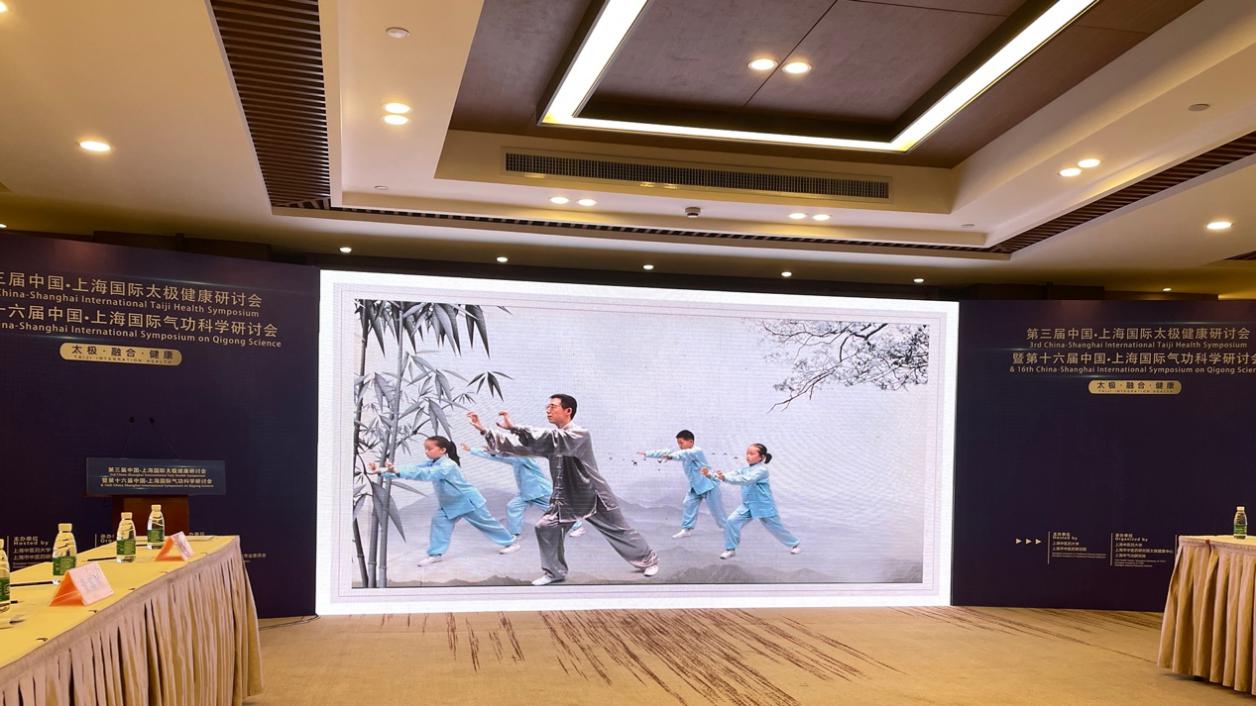
During the Qigong skill exchange session, Simon Blow from Australia showed the participants how Qigong was taught and promoted there. The students of Rose Primary School affiliated to Shanghai University of Traditional Chinese Medicine performed Spirited Five Elements Exercise. The European students of Qidao School of Shanghai Qigong Research Institute shared their experience of practicing Qigong after returning to their countries. Young and middle-aged teachers of the Taiji Health Center led their teams to show traditional Chinese medicine skills welcomed by health lovers at home and abroad, such as Lijin Exercises, Neigong Baduanjin, Yang Style Taiji Quan, Mingmu Gong, Concise Baduanjin and so on.
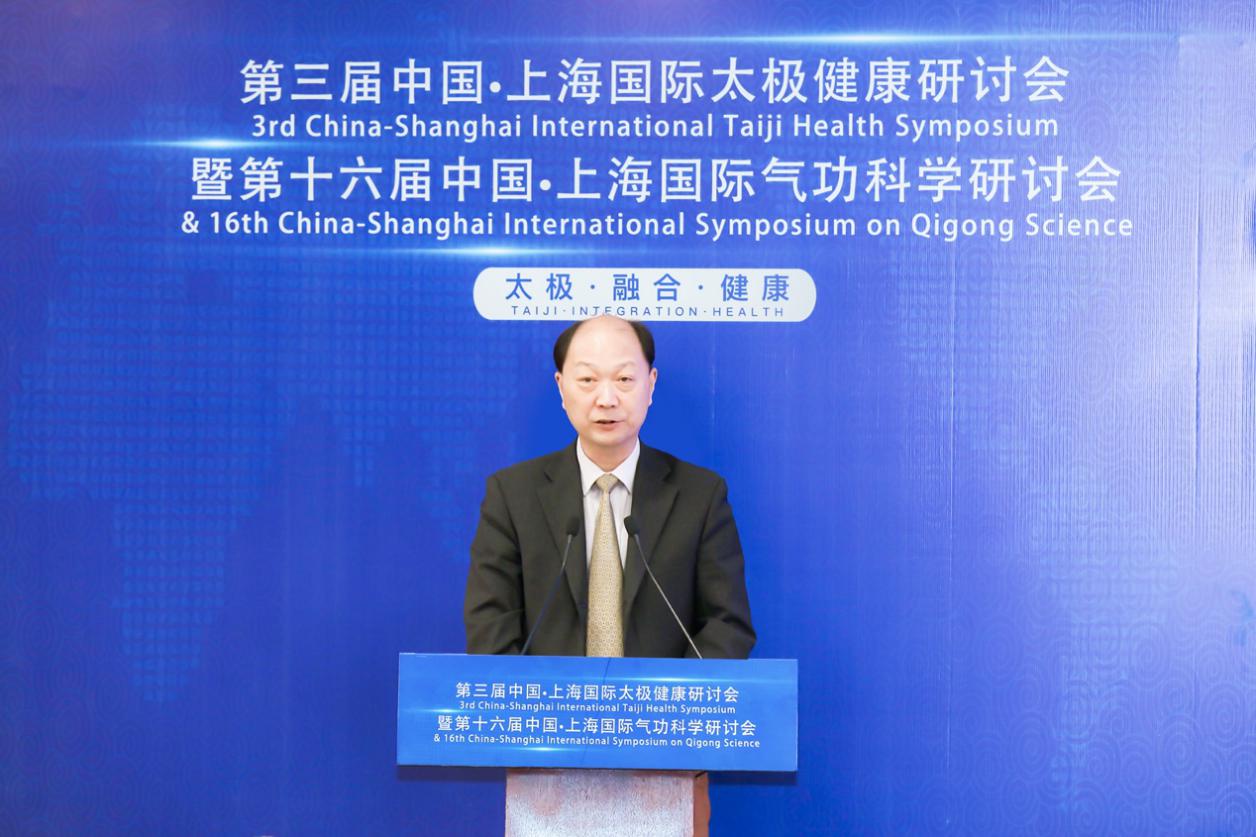
The closing ceremony of the conference was presided over by He Jiang, Secretary of the General Party Branch and Deputy Director of Shanghai Qigong Research Institute. Shanghai University of Traditional Chinese Medicine and Shanghai Institute of traditional Chinese medicine Taiji Health Center have set up two overseas branches of Taiji Health Center in Athens, Greece and Barcelona, Spain.At present, the construction of 'Taiji Health Center' has been officially included in the Memorandum of Understanding between the State Administration of Traditional Chinese Medicine of the people's Republic of China and the World Health Organization on Cooperation in Traditional Medicine, Outline of the Strategic Plan for the Development of Traditional Chinese medicine in Shanghai (2018-2035) and Healthy Shanghai Action Plan (2019-2030). It is not only one of the important components of the implementation of the health strategy of traditional Chinese medicine in the future, but also one of the important measures to integrate into the grand strategy of 'healthy China' and 'healthy Shanghai'. This international symposium on Taiji health has been held for three times so far. This exchange platform provides a platform for health researchers, Taiji Culture communicators and Qigong lovers all over the world to exchange ideas, learn skills and grasp the dynamics of academic development, so as to make 'Taiji Health' go to the world and promote Taiji Culture to play an important role in building a community of shared future for mankind and the harmonious coexistence between man and nature.
|
 Symposium
Symposium
 Symposium
Symposium